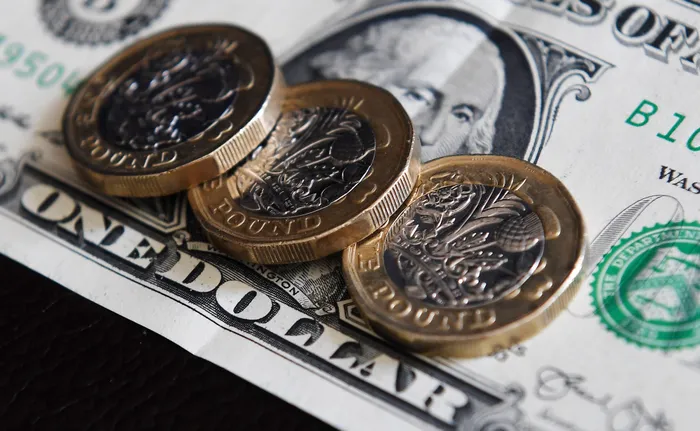Sterling rallies as Liz Truss resigns as Prime Minister

British government bond yields were broadly lower as their prices rose, while shares in London rallied briefly. EPA-EFE/ANDY RAIN
Sterling rallied on Thursday as Liz Truss said she would resign as prime minister, brought down by her economic programme that sent shockwaves through the markets and divided her Conservative Party just six weeks after she was appointed.
The pound, which had rallied ahead of the news, was last up 0.35% at $1.1262. It also edged higher against the euro to last stand at around 87.08 pence.
British government bond yields were broadly lower as their prices rose, while shares in London rallied briefly.
A leadership election will be completed within the next week.
"The short timescales of the leadership contests are designed to minimise impact for the pound, but you would not want to be long (sterling) until we know who takes over," said Kenneth Broux, currency strategist at Societe Generale.
Britain's mid cap share index briefly jumped 1% as Truss spoke and last traded up 0.4%, while UK blue chips turned negative.
The 10-year gilt yield was a touch lower on the day at 3.86% .
Truss' resignation came a day after a second top minister quit and rowing and jostling broke out among her lawmakers in parliament.
After only six weeks in the role, Truss's premiership has seen a bond market rout and a U-turn on almost all of her fiscal policy programme. Wednesday saw her lose her interior minister, less than a week after she fired her finance minister.
"Whoever comes in will probably be seen as a more credible prime minister than Liz Truss – on the margins, markets would probably like to see someone like Rishi Sunak," said MUFG currency analyst Lee Hardman.
Analysts said a dialling back of aggressive rate hike bets following comments from the BoE's Ben Broadbent had weighed on sterling earlier in the session.
Broadbent said the BoE is poised to respond to changes in Britain's tax and spending policies but it remains to be seen if interest rates go up as much as investors have been expecting.
Investors reined in further their bets of a full percentage-point interest rate increase by the BoE next month following the comments.
"Broadbent noted that the policy rate may not need to go up as much as markets are pricing and short-term gilt yields and sterling both declined," said Colin Asher, senior economist at Mizuho Bank.
The BoE is tasked with bringing down soaring inflation, with data on Wednesday showing food prices pushed British inflation into double digits last month.
Rating agencies S&P and Moody's review UK sovereign ratings on Friday, another potential headwind for British markets.
At 16:02 pm, the South African rand traded at R20.54 against the british pound and R18.26 against the dollar.
Reuters
Related Topics: